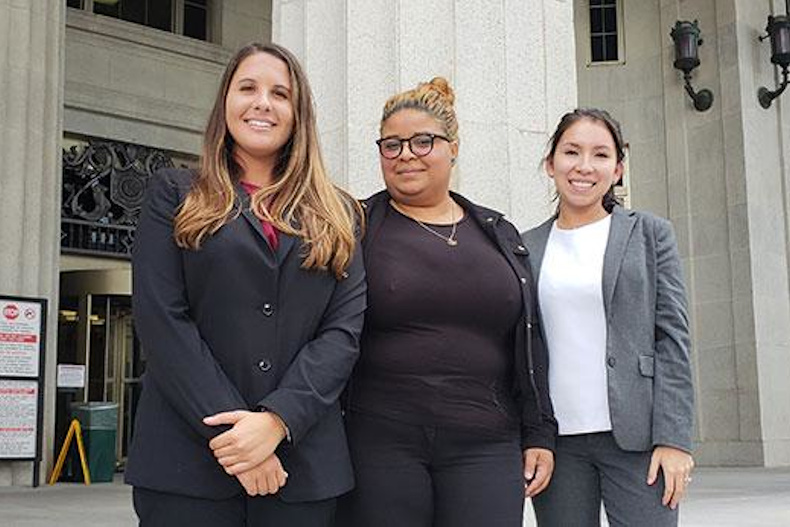The Miami Herald recently reported that Miami is the worst metropolitan area in the United States for renters. Almost 63% of tenants in South Florida are cost-burdened and pay more than 30% of their income towards rent. With few affordable housing options, families facing eviction from subsidized housing can quickly become homeless if they lose their rental assistance. Students in the Tenants’ Rights Clinic work to keep these families in their homes and, at the same time, learn valuable skills about litigation, negotiation, and advocacy. Here are two examples of successful cases from the 2018 Tenants’ Rights Clinic.
Ms. Smith, a working mother with five children, has lived in her two-bedroom apartment for several years. Even though Smith had been requesting to transfer because her apartment was too small for her family, Smith remained in the unit because HUD subsidized her rent. Unexpectedly, the landlord filed an eviction against Smith alleging that she had unauthorized boarders and because the downstairs neighbor complained about loud noises coming from Smith’s apartment. A large family in a small apartment can make some noise from time to time, and Smith disputed that her family disturbed other residents. Smith didn’t have any unauthorized boarders, but she did have family members who helped take care of her children while she was working.
At the beginning of the semester, Meagan Nicholson, a certified legal intern, was assigned to represent Smith in the eviction. “I quickly realized that this job came with great responsibility because my work in the clinic would have a real and lasting impact on Ms. Smith and her family,” said Nicholson. “I had a chance to help this family and prevent homelessness and hardship.”
Nicholson represented Smith at a hearing and argued for a dismissal of the eviction. Even though the judge denied the motion, because of the strength of Smith’s case, the landlord eventually agreed to dismiss the eviction and pay her attorney’s fees. Because of Nicholson’s advocacy, Smith and her family would remain in their home.
“I am very pleased that I secured a successful outcome for my client,” said Nicholson. “In the end, all Ms. Smith wanted was for her children to be safe and happy, and not to be displaced from their home, friends, school, and community. An eviction would have done just that, and the consequences could have been dire for her entire family. It meant a lot to me to have this opportunity to use my legal training and knowledge to help Ms. Smith and her children.”
In another case, Ms. Garcia, a mother of three, came to the clinic because she attended court-ordered mediation without a lawyer and agreed to move out of her public housing unit. Clinic students Nicholson and Adriana Pfeiffer were assigned the case. After interviewing the client, Pfeiffer and Nicholson learned that Garcia did not speak English and during mediation, she relied on her friend to translate the terms of the settlement agreement. Garcia did not understand she could refuse to sign the deal and refuse to move out and give up her subsidized apartment. Based on the lack of proper translation during the mediation, Pfeiffer and Nicholson drafted an emergency motion to set aside the order approving the settlement agreement. Nicholson successfully argued the proposal before the county court judge, over the opposition of the landlord, and the judge sent the parties back to mediation. This time, because she had legal counsel, Garcia and her family negotiated a settlement where she was able to remain in her apartment.
“As an immigrant who came to this country without knowledge of the English language, I greatly empathized with Ms. Garcia,” said Pfeiffer. “It would have been a sad misfortune if Ms. Garcia lost her home due to confusion and misinformation, but I am relieved that the outcome was favorable for her and her family.”
The Tenants’ Rights Clinic, based at Legal Services of Greater Miami, Inc., is offered each spring semester. Students work under the supervision of Jeffrey Hearne, where they have the opportunity to represent low-income clients with landlord-tenant disputes and to develop practical litigation and negotiation skills.

